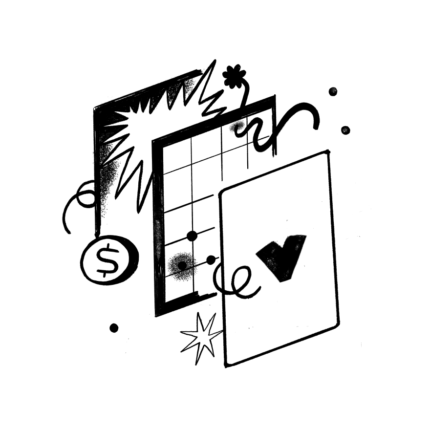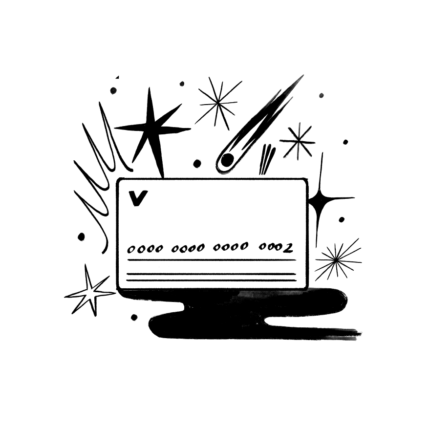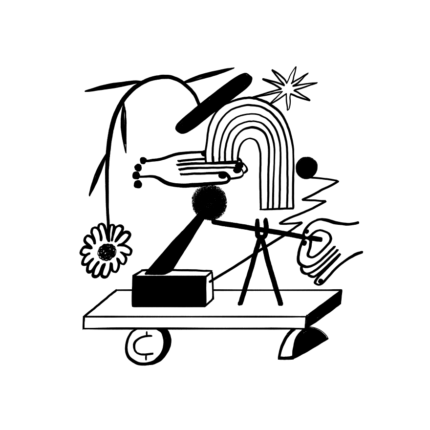
A health coach on the intersecting worlds of nutrition and healthcare
Health coach Joy Watts tells us about her own ever-evolving holistic wellness journey, as well as how she’s working to help others integrate top-notch food and reflection into their everyday life.
Trained in holistic nutrition coaching, Joy Watts is a full-time Student Advisor at the Institute for Integrative Nutrition (IIN). She works both one-on-one and in groups, helping people to explore food, their relationship to it, and more.
“I love bearing witness to people finding their paths,” Joy tells me. “Even more than that, I love helping them get there. I’m very lucky to have found that I can do that both at IIN, and in many of my own passion projects.”
In addition to her day job, Joy is also a private chef and food stylist.
“I’ve always had a relationship with nutrition and wellness, and I feel very privileged to have been raised in a household where health and food were prioritized,” Joy tells me, “but it took some time for me to find this balance.”


Joy attended The University of Connecticut, majoring in Environmental Studies with a focus on Agriculture and Urban Food Systems. For most of her life, she’s eaten plant-based and been “pretty environmentally conscious.” But it wasn’t until Joy started cooking professionally that she began to explore her own relationship to food and let it take on a greater meaning.
“I worked in a kitchen right out of college and realized pretty quickly that I’d adopted a bit of a messy relationship with food, as well as with my body. I began to make a conscious effort to think more critically about what I fed myself, and about what made me feel good.”
“It actually didn’t take too long,” Joy tells me, “to feel better physically. But even more than that, I felt better within and about myself, which translated to how I was around others. Slowly but surely, I realized that I could use food for good in so many aspects of my life.”
Taking on big picture questions
Not only does Joy work at IIN, but she was also a student there in 2018.
“IIN encourages its students to place a special emphasis on getting in tune with themselves on the whole,” Joy tells me. “It’s not just about what you’re eating and drinking and whether or not that’s making you feel good. A big part of the work is considering how all pieces of your existence are playing into your reality.”
I tell Joy that all of the above seems like a big ask, but she only semi-agrees.
“Most people are asking themselves big picture questions all the time. The difference in this instance is that IIN teaches you to view all of these pieces as inextricably connected. To consider them on the whole instead of as individual parts.”
If you’re not also working towards wellness in all the other areas of your life, at the end of the day, it doesn’t really matter what you’re eating, you know?
These ‘big picture’ conversations are the same ones Joy now facilitates with her own students. She poses questions like: What do your relationships look like? How is your home life? Do you feel in control of your finances?
“I try to get my students to understand that if you’re not working towards wellness in most, if not all of the areas of your life, it doesn’t really matter what you’re eating at the end of the day, you know?” She laughs.
“Consider your finances. They’re actually so connected to your experience with food,” Joy explains. “Think about when you go to a farmers market versus when you go to the supermarket. The experience in and of itself is entirely different. And of course, I understand, we can’t always go to the farmers market,” she laughs. “But there’s a through-line there.”
“It’s the intentionality associated with both things: money and food. When you buy produce from people in your area, for instance, people who grow food from the soil down the street, and you take that home and you make a meal and you feed yourself and your roommates, you’ve invested in your community, yourself, the people you hold close. It’s all linked.”
Intersecting worlds of wellness
From the little I know of holistic wellness heading into my conversation with Joy, I feel sure of one thing: integrative nutrition experts like Joy don’t “like” the doctor.
“Wrong!” Joy tells me when I make the assertion. “I promise, we really like the doctor!” Joy laughs.
“What intuitive and holistic nutrition is asking of you is different from western medicine practices in that it requires you to check in with yourself more regularly,” she explains. “It’s similar to what you’re doing at Starship, I think. Educating folks, helping them think deeper about their health. Their wallet. How the two affect each other. That’s why we call it holistic.”
I firmly believe that, like so many things in this world, these two systems {healthcare and integrative nutrition} work best in concert.
And just because Joy often looks first to natural methods of care before the medicine cabinet, doesn’t mean she isn’t a proponent of traditional health practices. In fact, Joy is enrolled in a “great health insurance plan provided by IIN.” She also takes advantage of her HSA.
“I have asthma and need an inhaler. I go to therapy. I see an optometrist and go to the dentist. I firmly believe that, like so many things in this world, these two systems [healthcare and integrative nutrition] work best in concert. Having a well-rounded understanding of how all of these things work together is an empowering approach to your own health.”

“Just because integrative nutrition uses less traditional means for wellness doesn’t mean we are blind to the necessity of having an emergency plan. Things happen and food can’t always be the cure!” she laughs.
“You can eat really well and take some herbal remedies, but at the end of the day, if you’re feeling really sick, perhaps it’s time to see the doctor. Be honest with your needs. Seek balance. Self-care looks like a lot of different things for a lot of different people.
A practice in possibility
As our call ends, I ask Joy what she’d like to see change in the world of wellness.
“I’d love to see people break away from the trends of alternative wellness and instead, view it as a practice in possibility.”
Joy often tells her clients that just because your friend is healthier, say, as a vegan, doesn’t mean that you will be, too.
“If you’re interested in giving veganism a shot, go for it! Want to get up at 4 am and see what you can accomplish? See what happens! But always pay attention to your bio-individuality. Your personalized systems and approaches to wellbeing should be as unique as you are.”
Testimonials on this site are applicable to individuals writing them and do not represent the views of Brighter Financial, INC. Some individuals have received compensation.


